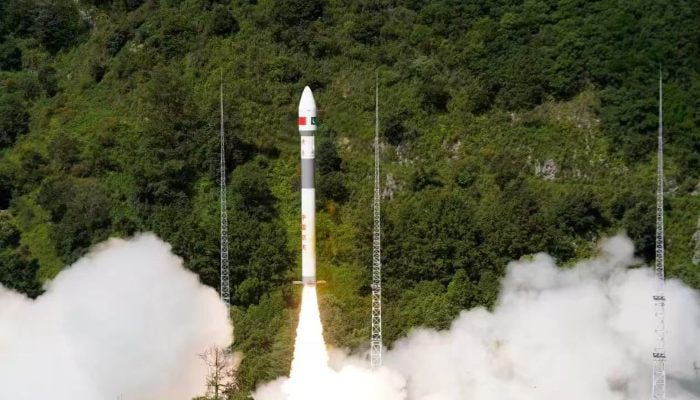Pakistan has achieved a significant milestone in its space program with the successful launch of a new remote sensing satellite from China’s Xichang Satellite Launch Centre. The satellite, developed by the Space and Upper Atmosphere Research Commission (Suparco), is designed to enhance Earth observation, agricultural monitoring, and environmental analysis. It will also support strategic projects like the China-Pakistan Economic Corridor (CPEC), helping with geospatial mapping, disaster prediction, and resource management. This marks Pakistan’s second remote sensing satellite after PRSS-1 (2018), bringing the total number of operational Pakistani satellites in orbit to five.
Equipped with high-resolution imaging systems, the satellite will play a crucial role in flood forecasting, earthquake monitoring, landslide detection, and glacier tracking. Suparco stated that it will also aid in urban planning, precision agriculture, and climate surveillance, contributing to sustainable development. The launch aligns with Pakistan’s National Space Policy and Vision 2047, reinforcing the country’s growing capabilities in space-based research and strategic monitoring.
Federal Minister Ahsan Iqbal congratulated the nation, praising Suparco’s scientists and engineers for their achievement. He described the launch as “another URAAN of Pakistan” and emphasized the deepening Pakistan-China space partnership. Iqbal also revealed that Pakistan plans to send its first astronaut to space in 2026 with China’s assistance and aims for a Moon mission by 2035. This follows other recent milestones, including the indigenous EO-1 satellite (2025) and the iCube-Qamar lunar orbiter.
The latest launch builds on years of advancements, starting with PakSat-1R (2011), PakTES-1A (2018), and PRSS-1 (2018). In 2024, Pakistan launched PakSat-MM1, improving internet access in remote areas. The country’s space ambitions continue to grow, with plans for more satellites, astronaut missions, and lunar exploration, positioning Pakistan as an emerging player in global space technology.


